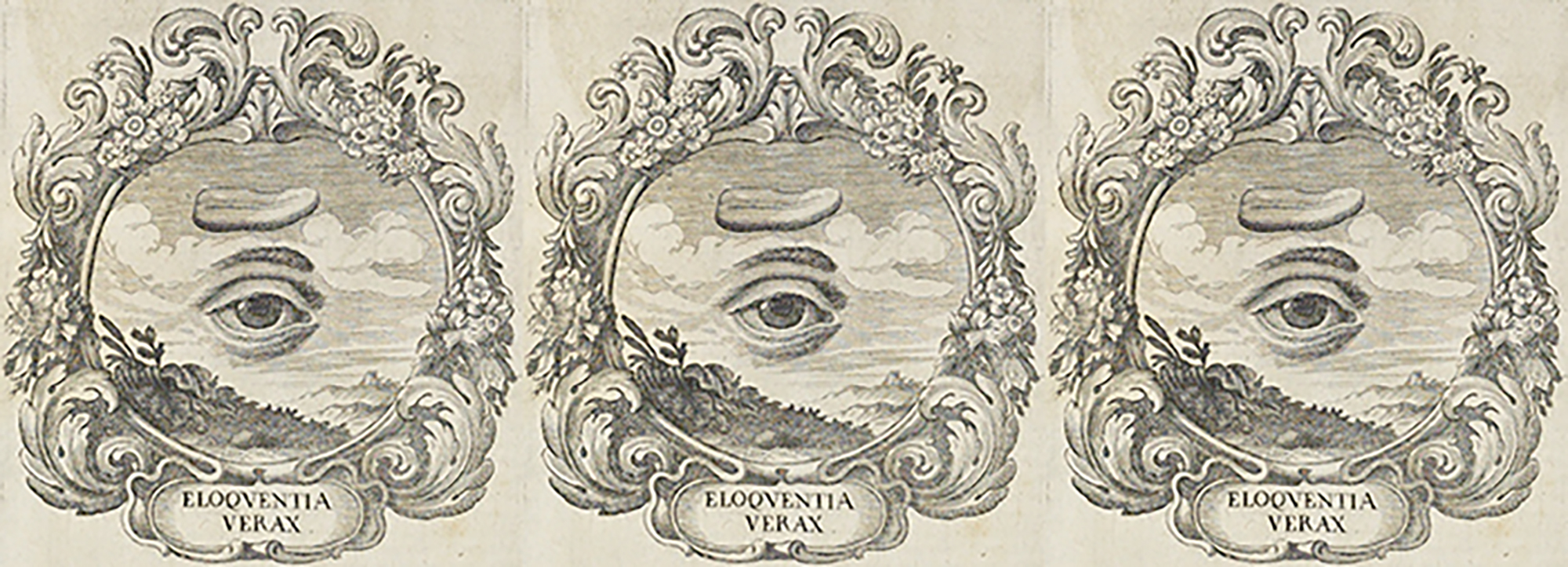
(In the public domain, from Scarlatini, O., Bencard, J. Caspar., Heckenauer, L., Honcamp, M. (1695). Homo et ejus partes figuratus & symbolicus, anatomicus, rationalis, moralis, mysticus, politicus, & legalis, via HaithiTrust)
In his ultrabrief “Laconics,” retired English professor David Shields, AM’75, PhD’82, cuts straight to the heart of things.
In the early 1990s at the Citadel, English professor David Shields, AM’75, PhD’82, began to design a new course. The idea came in response to a need he saw among his students: “To be able to snag the attention of people who aren’t particularly interested in your subject.” It's one thing to communicate the value of one’s work to people who share that interest. For other audiences—like hiring managers—students should be able “to make your point as instantaneously and as powerfully as possible.” His department didn’t offer a class in that rhetorical skill.
The course he created trained students, through examples and practice, to “compress the maximum of meaning in the minimum of linguistic space.” He called the course The American Sentence and Maximum Impact, among other names over the years. Among the masters of the sentence form whom Shields taught were Henry David Thoreau, Ralph Waldo Emerson, Dorothy Parker, Mark Twain, George Santayana, and Wallace Stevens.
As part of his work on the course, “I began the practice of, the last thing before going to bed every night, putting down the two things that I’d learned in the course of the day into a sentence. And I did that religiously,” Shields says. As that store of sentence-long learnings built up, he would periodically go through, reread, and edit them. “They could be made even more cogent, even more daring in their figural attack, or even more acoustically alluring,” Shields says. “I began tinkering with the sound arc of a sentence or the effects that happen when you disrupt the normal order of grammar,” maybe switching subject and predicate like Yoda in Star Wars.
These stiletto-sharpened sentences now number in the hundreds. As a group Shields calls them “Laconics,” after the early 18th-century work Laconics: or, New Maxims of State and Conversation. Relating to the Affairs and Manners of the Present Times. In Three Parts. by the Englishman Thomas Brown. Under that umbrella term, they are categorized into epigrams, adages, definitions, rejoinders, proverbs, questions, and more. Following are several that we found especially striking.
Epigrams
Compliments are half-recalled
while insults hold a mind enthralled.
The idealist ponders the destination,
The pragmatist, the journey,
The poet, an alternative itinerary,
The theologian, a subsequent venture.
Good deeds are not stepping-stones to paradise,
but the path they blaze does lead away from the abyss.
Adages
Writing is peculiarly suited for those who think slowly.
Between words and works hesitation lurks.
Hate eats the quiet in one’s heart.
The popular are applauded upon entering,
the talented, upon leaving.
While no gives you liberty,
Yes gives you company.
Positions
No one loves the disenchanter.
There are no new passions, no new emotions;
there are new moods.
Sometimes nonsense is the sole remaining path to innocence.
Only in politics is disenchantment invariably beneficial.
Definitions
Weariness is fatigue made theatrical.
Fact is truth without the world attached.
Complexity—when too many paths of action present themselves to permit decisiveness.
Knowledge: parcels of experience discrete enough to be recalled.
Rejoinders
“Every man is occasionally what he ought to be perpetually.” (Traditional)
Every man is perpetually revising what he ought to be. (Shields)
Familiarity can lead to things other than contempt.
Beauty is better than all the letters of recommendation in the world. (Aristotle)
In a few years the letters of recommendation will come in handy. (Shields)
People change and forget to tell each other. (Hellman)
People don’t change but tell each other that they have. (Shields)
Proverbs
Gifts should give body to thoughts.
The lesson of dust: if you are small enough you can fly.
Quiet is the music of manners.
A taste of failure gives fury to ambition.
Questions
That friend who devotes himself to reforming you? We call this friend “the enemy.”
Does praise sound best when grudging?
When the box of chocolates is opened, who saves the best for last?
Aphorisms
One task of politics is to discover the present’s most potent term of blame. This is a bipartisan inquiry.
Total disclosure can be a mode of obfuscation.
The proliferation of laws insures the public’s ignorance of what is legal.
Wisdom leans toward trepidation.
The industrious differ from the busy in that they don’t have time to tell you how hard they’re working.
Events turn into stories when speakers suppose a reason why the unexpected thing took place.
The innocent may be beautiful, but only those touched by the world are glamorous.
The partisan invokes “the crisis” to damn the uncommitted.
Maxims
Do not ask for less than you need.
Beware when someone’s sacrifices grow conspicuous.
Don’t take a front row seat at a spectacle.
Work hard … in front of people.
Minims
In sleep the present blurs.
Suspicions cluster.
The vox populi is a choir.
Many hear; fewer listen.
Cruelty volatile; vindictiveness steady.
Witticisms
Celebrity is the penalty for possessing a talent that many people understand.
Television: for the sake of plot interest, one begins to yearn for an eighth deadly sin.
Making no sound like yes is the chief talent of editors and casting directors.
Observations
Opinion rarely attains the rigor of judgment.
The nose is the organ of sense least subject to delusion.
Wisdom is tethered to age and pain.
Friends differ from allies in that mutual affection predominates over shared interest.
Most reform is rearrangement.
Dicta
Love renders intimacy durable.
In tight places you must, like the worm, lubricate your way forward.
Civilization disciplines appetite, but it cannot reprogram instinct.
Liars compulsively perform their tendencies. Fabulists wrestle old plots into novelties.
If you know you are loved deeply you can sometimes overcome the sense you are unworthy to be loved.
